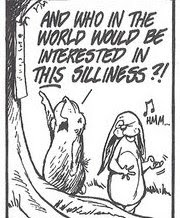Comps Round One: Over
I have survived written comps, although I have yet to hear back from all of my committee. We do exams in two stages in my local English department: a 72-hour take-home written exam and, later, an oral defense of a 25-page paper and its attendant reading list.[1] I finished the first part of this journey at noon on the 7th of November.
My exam had three possible questions, from which I was to pick two and compose responses of close to 15 pages for each. My questions asked me to 1) trace the theme of boundaries through four of the six accompanying works (Beowulf, Sir Orfeo, Pearl, Mandeville, The York CC Plays, and Le Morte Darthur), but was open-ended as to that theme's ultimate meaning; 2) Use four theorists from the reading list (two medievalists, two non-medievalists) to define "utopia," and then apply that to one or two medieval texts from the list; or 3) Give three Marxist readings of works and explain why they were useful and what harm they might do to the text. Note that these are parapharasings of the questions; if you're confused, I'll try to find what I did with the question sheet and post it here later (or not, if WAQ/MKB/DAJ say otherwise). I did the first two, not because I didn't want to do the third one but because I didn't have time to come up with three Marxist readings off the top of my head.
I may post the responses to these questions here at a later date, once I've heard back from all of my committee, and maybe given them another polishing. Brief summaries follow: Question 1 I answered by exploring Beowulf, Mandeville, Pearl, and Malory, and talked about the ways that each negotiated the boundaries of time; I used Jeffrey's first chapter in MIMs as a starting point for this discussion, and pointed to the Sword Hilt in Beowulf, the Temple Mount complex in Mandeville, the boundary between paradise and earth in Pearl, and . . . Merlin in Malory. I then added a utopian spin to this, which brought in some Bloch.
I answered the second using definitions from Bloch (again), Hilario Franco, Karma Lochrie, and Lyman Tower Sargent, and applied their composite definition (social dreaming with a push forward) to Chaucer's House of Fame, which is useful for a number of things. We'll see.
That done, I largely took the week off—as much as any of us can "take the week off." I spent it reading an abridgment of the 16th-century Chinese novel Water Margin, which is as far outside of my field as I could get without, say, going uncomfortably back into the realm of abstract mathematics and quantum physics.
Coming back this week to critical theory, I started to read Brian Massumi's Parables for the Virtual, which I'd heard about in Wan-Chuan Kao's presentation at SEMA ("The Object Biography of Whiteness: Affective Labor and the Color of Salvation in Pearl"). I understood Wan-Chuan's presentation well enough, but Massumi's book wasn't as clear as I would have liked. It seems to be about bodies, and the various states of being or sensation those bodies may posses, and the possibilities that these various states engender, and I have no problem with that on its own. Maybe it's the comps process, maybe it's my gearing up/focusing in toward the dissertation, but I've realized that there are some avenues of scholarship that I am just not interested in pursuing. I'm not saying there's anything inherently wrong with those works, but I'm not up to the slog right now.
-----
NOTES:
[1] This is just for the PhD in English Literature requirement. The PhD in Comparative Literature apparently invovlves a wild series of exams and the Auto-da-Fé.
20081117
Subscribe to:
Posts (Atom)

